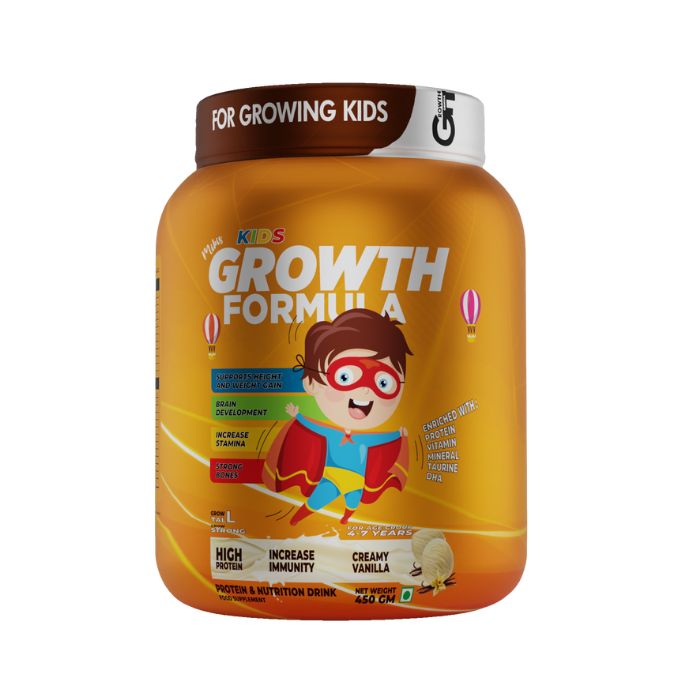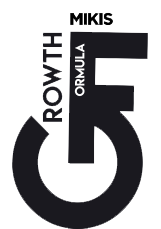
Whey Protein for Teenagers: A Safe Growth Guide
In today’s world, where nutrition plays a critical role in physical development, mental alertness, and immune strength, the importance of whey protein for teenager nutrition cannot be overstated. Teenagers go through significant physical changes, emotional shifts, and increased physical activity. This is the stage where the body demands a well-balanced intake of macro and micronutrients- and that includes protein.
This blog dives deep into why protein powder for teens is becoming increasingly popular, how it benefits growing bodies, the myths and facts surrounding it, and what every parent should know before introducing supplements to their child’s daily routine.
Why Protein Is Essential During Teenage Years
Protein is one of the building blocks of the human body. During teenage years, the need for protein increases significantly. It supports muscle development, bone growth, hormonal changes, skin health, and immune strength. Unfortunately, many teens today do not get enough protein from their daily diets due to busy schedules, fast food culture, or limited awareness.
This is where whey protein for teenager health comes into focus- it helps fill the nutritional gaps without compromising on taste or lifestyle preferences.
What Is Whey Protein?
Whey protein is a by-product of the cheese-making process. It is a complete protein, meaning it contains all nine essential amino acids that the body cannot produce on its own. It is also easily digestible and quickly absorbed by the body.
When included responsibly, whey protein for teenager nutrition is considered safe and effective in supporting daily protein needs, especially for active teens involved in sports, dance, or fitness activities.
Is Protein Powder for Teens Necessary?
Not every teenager may need protein supplements. Ideally, a well-balanced diet with lentils, dairy, nuts, seeds, vegetables, meat, and eggs should suffice. But when food intake doesn't meet protein requirements- due to dietary restrictions, picky eating habits, athletic training, or undernourishment- protein powder for teens becomes a useful nutritional tool.
Here are common scenarios where parents consider supplementation:
-
Teen athletes in training
-
Teens undergoing rapid growth spurts
-
Vegetarians/vegans with limited protein options
-
Teens recovering from illness
- Picky eaters who skip protein-rich meals
Health Benefits of Whey Protein for Teenagers
When used correctly, whey protein for teenager health offers several science-backed benefits:
1. Supports Muscle Growth
As teenagers grow, they build muscle and bone density. Whey protein for teenager fitness helps support lean muscle mass without added calories or fats.
2. Enhances Athletic Recovery
Teens involved in physical activities need post-workout recovery nutrients. Protein powder for teens helps repair muscles and reduce fatigue after training.
3. Boosts Immune Function
Whey protein contains amino acids and antioxidants like glutathione that improve the body’s defense system.
4. Maintains Healthy Hair, Skin, and Nails
Protein contributes to collagen and keratin formation, making whey protein for teenager beauty and grooming concerns also valid.
5. Helps in Weight Management
Proper protein intake can reduce cravings, increase satiety, and promote healthy body composition. This is particularly useful for teens with weight concerns.
Safe Usage Guidelines for Teens
Parents often worry about supplements. The good news is, protein powder for teens is safe when used properly.
Here’s how to ensure safe consumption:
-
Always consult a pediatrician or dietitian before starting supplements.
-
Stick to the recommended dosage- usually 0.8- 1.2 grams of protein per kilogram of body weight daily.
-
Combine with healthy food- never use supplements as a food replacement.
-
Choose clean labels- go for products without added sugar, artificial additives, or banned substances.
Most importantly, do not fall into the trap of “more is better.” Balance is key in teenage nutrition.
Myths About Whey Protein for Teenagers
Despite its benefits, there are many misconceptions around whey protein for teenager safety. Let’s bust a few of them:
Myth 1: Protein powder causes kidney damage
Fact: For healthy teens with no prior kidney issues, moderate intake of protein powder for teens is absolutely safe.
Myth 2: Whey protein is only for bodybuilders
Fact: Teenagers need protein for growth- not just muscle building. Athletes, dancers, and even students benefit from a balanced intake.
Myth 3: It leads to early puberty
Fact: No scientific evidence connects whey protein for teenager usage with hormonal imbalances or early puberty.
Myth 4: Protein powders contain steroids
Fact: Authentic protein powder for teens is free from steroids. Always choose certified and transparent brands.
When to Include Protein Powder in a Teen’s Diet
If you’ve already ensured that your child eats enough protein-rich food and still has a gap, you can introduce whey protein for teenager consumption in the following ways:
-
After sports practice or gym sessions
-
As a post-breakfast smoothie
-
Added to oatmeal or pancake batter
-
Blended with fruits for a nutritious snack
-
As a quick meal supplement on busy school days
Remember to monitor how your teen feels. More energy, better focus, and improved strength are all positive signs.
Homemade Alternatives to Protein Powder for Teens
While protein powder for teens is convenient, parents can also use natural ingredients to enhance protein intake:
-
Peanut butter and banana shakes
-
Paneer or tofu sandwiches
-
Chickpea salads
-
Hard-boiled eggs or Greek yogurt snacks
-
Roasted nuts and seeds
Combining such foods with whey protein for teenager shakes can form a balanced nutrition plan.
Who Should Avoid Protein Supplements?
Though generally safe, the following teens should avoid supplements unless directed by a medical professional:
-
Teens with existing kidney or liver disorders
-
Teenagers with hormonal conditions
-
Those with lactose intolerance (opt for plant-based protein instead)
-
Allergic individuals to dairy-based products
Always go for customized advice before adding protein powder for teens to daily intake.
Final Thoughts: Helping Teens Grow Strong with the Right Protein Support
The teenage years are full of changes- physical, mental, and emotional. Nutrition during this time can build a foundation for lifelong wellness. While food should always come first, supplements like whey protein for teenager needs can support active lifestyles and nutritional gaps.
Protein powder for teens isn’t a shortcut to instant strength or body transformation. It is, however, a responsible choice for balanced growth when used with expert guidance, clean products, and an overall healthy diet.
Whether your child is a budding athlete, a dancer, or simply a growing teen with a packed school day, adding the right whey protein for teenager support can fuel them through every challenge with confidence and energy.
FAQs
1. Is whey protein safe for teenagers?
Yes, whey protein for teenager nutrition is safe when taken in moderation and under parental or expert guidance.
2. How much protein does a teen need daily?
The average requirement ranges from 40 to 60 grams daily, depending on age, weight, gender, and activity level.
3. Can teens use protein shakes every day?
Yes, protein powder for teens can be consumed daily if there is a dietary gap and it’s used responsibly.
4. Does whey protein cause weight gain?
Not necessarily. It depends on overall calorie intake and physical activity. Whey protein for teenager health is about balance.
5. Is protein powder addictive or harmful?
No, genuine protein powder for teens is not addictive. It’s a dietary supplement, not a drug.
6. What is the best time to consume whey protein?
Post-workout or with breakfast are ideal times. For teens, timing should depend on their daily schedule.
7. Can a vegetarian teenager take whey protein?
Yes, as whey is a dairy product. For vegans, plant-based protein powder for teens options are available.
8. Can whey protein cause early puberty or acne?
There is no proven link between whey protein for teenager health and hormonal disorders like early puberty or acne.
9. How to choose the right protein for teens?
Look for clean labels, natural ingredients, no added sugar, and verified certifications for protein powder for teens.
10. Can teens take whey protein without exercise?
Yes, if there is a protein deficiency. But pairing whey protein for teenager consumption with physical activity gives better results.
